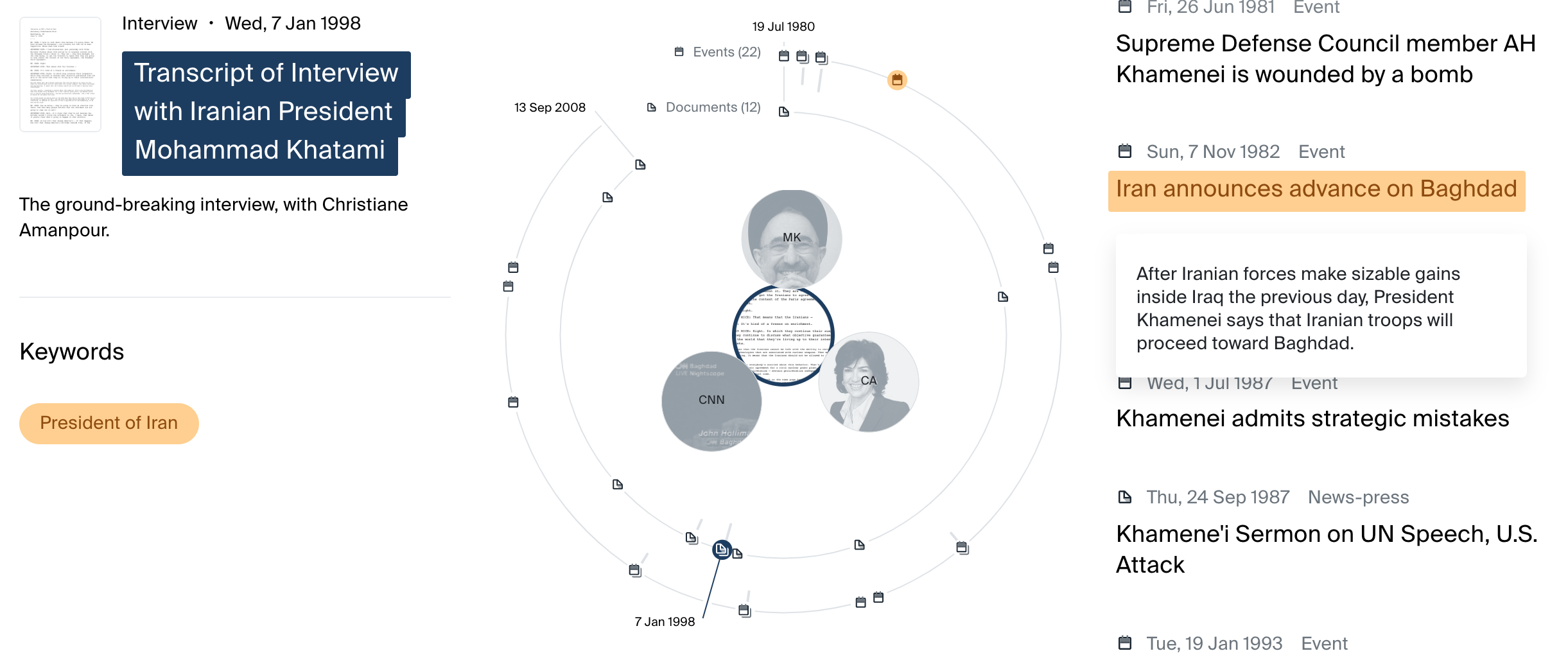US-Iran: National Narratives, America, Iran, and the Clash of Civilizations

The US-Iran Relations Project brings scholars and policymakers from both countries together to explore the period following the Islamic revolution in Iran and consider why improvements in bilateral relations did not occur. “We are undertaking research that can lead to a deeper and more productive understanding between the two countries,” says John Tirman, executive director of the Center for International Studies (CIS) and an organizer of the project. “Innovative engagement with Iran, rather than posing it as an object of hostility or attack, is not only normatively preferable but vastly more interesting as an intellectual endeavor.” In support of this project, the HyperStudio is creating a collaborative, multilingual research environment that allows scholars and policymakers to explore thousands of original documents from Mohammed Khatemi’s presidency in Iran and to compare and contrast views of events.
Info site: US-Iran Relations info
Application: US-Iran Relations app (Chrome only)
Technical Description
The digital archive consists of 560 documents, dating from 1971 to 2012. Those have been summarized and enhanced with additional metadata. Furthermore, a thousand event entries ranging from 1975 to 1999 extend the dataset.
In order to uncover patterns within the archive and to contextualize individual documents and events, connections were made. We also used the process called named entity extraction to identify protagonists involved in the dataset. While the dataset might contain human biases and automation mistakes, it served as an initial foundation for further investigation and will be improved in the long run. Ultimately, those connected entries were visualized in an interactive digital archive that provides an elegant way to access and explore the delicate connection between the two countries.
White Paper: US-Iran Project Software Overview
Collaborators
Project Lead: John Tirman, executive director of MIT’s Center for International Studies
Active Archives Initiative: Kurt Fendt, Ben Silverman, Liam Ackerman
University of Applied Sciences Potsdam: Bela Kurek, Florian Zia, Joshua Pacheco, Lucas Vogel, Ludwig Frank
HyperStudio: Christopher York, Karen Verschooren, Whitney Trettien, David Della Costa, Brett Barros, Stephanie Stewart, Nicolas Seaver, Gabriella Horvath
The Watson Institute for International Studies at Brown University: Janet Lang, Jim Blight
The National Security Archive at George Washington University: Malcolm Byrne
Indiana University: Hussein Banai
Funding
An MIT alumnus
